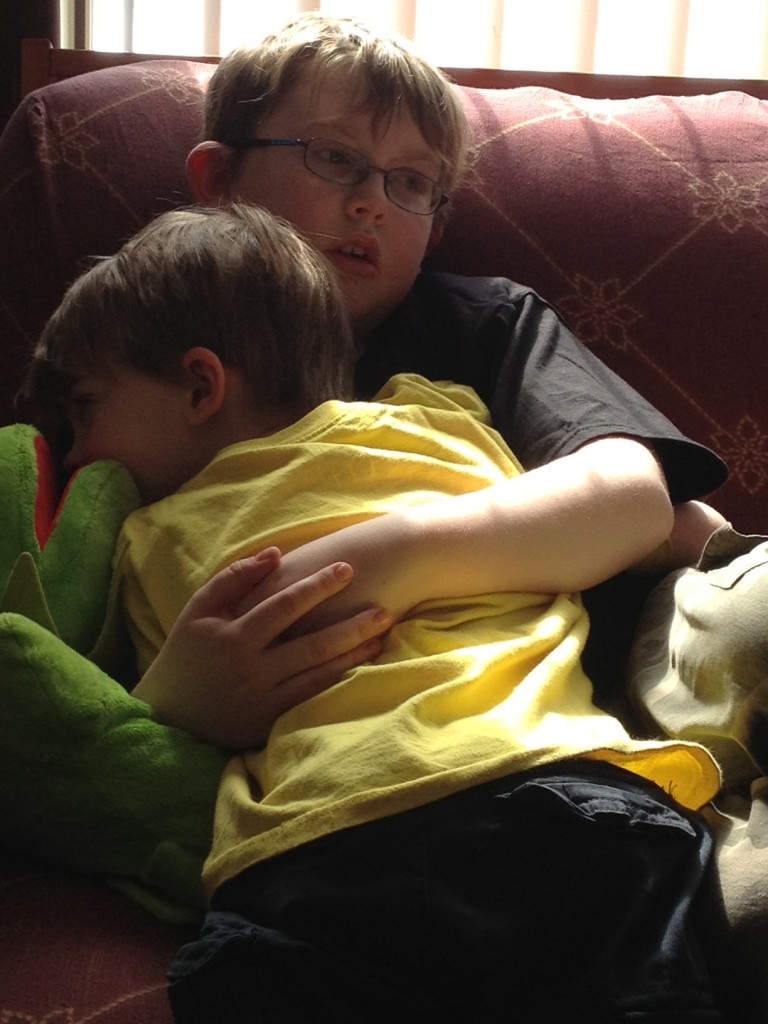 Psychology, Social Studies
Psychology, Social Studies  2 Comments
2 Comments Feel the Burn
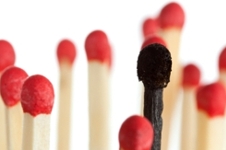 I’m sleeping pretty well, but I wake up exhausted every morning. This is Day 8 of a skull-crushing tension headache. Fears I’m forgetting something important plague me constantly. Activities that used to leave me with a two-hour adrenaline hangover now make me tired before I even start. My threshold for sensory overload is so low, I’m having small meltdowns several times a day. I stop taking phone calls. I avoid friends.
I’m sleeping pretty well, but I wake up exhausted every morning. This is Day 8 of a skull-crushing tension headache. Fears I’m forgetting something important plague me constantly. Activities that used to leave me with a two-hour adrenaline hangover now make me tired before I even start. My threshold for sensory overload is so low, I’m having small meltdowns several times a day. I stop taking phone calls. I avoid friends.
I am burned out.
I’m excellent at being the little cog in a big machine, but I need a solid sense of the macro to stay motivated. But lately, everything’s been so myopic that I can’t see my place in the larger efforts I’m working toward, and it hasn’t been good for me. I feel myself withdrawing, and I don’t like being powerless to stop it. It’s crunch time, and I’m more disengaged than ever.
I called a dear friend for a lunch date, to ask him how he’s dealt with the burnout that must have been familiar in his super-intense job over the last year. Just seeing him makes colors brighter, but I need his advice, so I asked him how he manages to stay fresh over the long haul.
Some of that advice is expected. You have to set boundaries and practice saying “no.” Be at home when you’re at home. Put away the cellphone and computer. Make yourself present for your loved ones, and don’t feel guilty when you do something you love that’s totally unrelated to the greater effort. Self-improvement can wait. Feed your soul. Rest.
Some of his advice triggers an instant inner eyeroll, but I try to take it to heart, since I’m at such a loss with my own efforts. At the end of the day, take the time to write down one thing you did well. Accept praise. Don’t let doubts or second guesses stick around. Self-talk feels artificial, but it registers somewhere deep inside our brains, so do it anyway.
I’m someone who has a negative, self-critical tape on endless replay at varying volumes in her mind all the time. These are difficult steps to imagine taking. I realize that part of what’s made me feel insignificant over the last several weeks is a lack of outside reinforcement for anything specific I do. I don’t know what I’m good at. It’s impossible for me to ask for praise, but I’m starving for it. Recognition by another human that your inner intentions and outer efforts are registering in the world is absolutely necessary. My friend holds my hands and tells me how much love he always senses pouring out of me toward every person I meet. I cry a little; I’m tearing up again now as I write this.
In the grand scheme of things, the fact that I’m feeling burned out at last after over 14 months of non-stop effort and tension is only surprising in that it took this long. We all go through cycles of intense focus, followed by necessary disengagement. Only the daily grind of steady work is unnatural in this process, and constant effort is unhealthy and untenable.
But if I want to relight the fire that burns inside me for the work that makes me valuable in the world, I have to do exactly what’s most difficult right now. I need to reach out to other people for that moment of human connection. I need to remember what I love about what I do, and let others see that. I need to ask for help seeing the Big Picture. I need to accept praise, even from myself. I need to make plans and dream dreams for what happens after this work is done. I need to keep creating, whether it’s adding just ten words on a writing project, or prepping my garden for planting, or baking cookies. I need to let small joys accumulate.
Burnout is real and natural, but the solution isn’t smothering the fire. It turns out, the answer is letting others help you feed the flames.

 Religion is a tricky thing. I should know–on a variety of levels, I’ve been studying the features and interactions of religion since I was a little girl. In fact, I made a profession of it, quite by accident, as
Religion is a tricky thing. I should know–on a variety of levels, I’ve been studying the features and interactions of religion since I was a little girl. In fact, I made a profession of it, quite by accident, as  But, as
But, as  The facts of my faith, on the other hand, are these: I feel a deep, ineffable connection to ancient generations through the rituals and beliefs I hold dear. I am part of an endless continuum of women and men who have marveled at the beauty of the waxing moon, or tasted the similarity between sea water and tears, or celebrated the first point at which the days become perceptibly longer. Nature is my religion, the forests my cathedrals, the fields and shores my pilgrim paths. That biology and astronomy and physics and geology all mingle to create the singular experience of life on this planet is all the mystery and wonder my soul needs.
The facts of my faith, on the other hand, are these: I feel a deep, ineffable connection to ancient generations through the rituals and beliefs I hold dear. I am part of an endless continuum of women and men who have marveled at the beauty of the waxing moon, or tasted the similarity between sea water and tears, or celebrated the first point at which the days become perceptibly longer. Nature is my religion, the forests my cathedrals, the fields and shores my pilgrim paths. That biology and astronomy and physics and geology all mingle to create the singular experience of life on this planet is all the mystery and wonder my soul needs.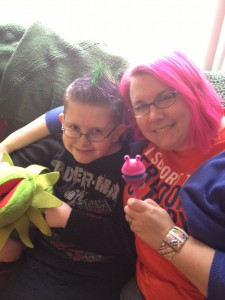


 tales to the straightforward ones.
tales to the straightforward ones. address that lack of feminine agency, I came up embarrassingly short of good lessons for boys. Current fairytale telling seems to operate on the idea that there’s a finite amount of power and smarts in the story, and if the women get more of it now, it has to happen at the expense of the men.
address that lack of feminine agency, I came up embarrassingly short of good lessons for boys. Current fairytale telling seems to operate on the idea that there’s a finite amount of power and smarts in the story, and if the women get more of it now, it has to happen at the expense of the men. Princess Fiona, Merida, and Rapunzel are smart, feisty, and entirely capable of their own liberation and defense in times of peril. Heroes, on the other hand, like Shrek, Merida’s father Fergus, and Flynn, the hero-rogue in Tangled, are to varying degrees incompetent, gullible, morally weak, and easily distracted from their goals, dependent on the women in their lives to keep them in line and out of trouble. The only male characters that go through real, multi-layered, character evolution in recent years are Beast from Disney’s Beauty and the Beast and Hiccup in How To Train Your Dragon. Jack in the recent Jack the Giant-Killer is a fairly humble live-action hero whose love for the princess, at the very least, does not make him stupid. Shrek does go through some evolution, but seems to stumble his way from lesson to lesson, and seems weakened and henpecked by the end of the series.
Princess Fiona, Merida, and Rapunzel are smart, feisty, and entirely capable of their own liberation and defense in times of peril. Heroes, on the other hand, like Shrek, Merida’s father Fergus, and Flynn, the hero-rogue in Tangled, are to varying degrees incompetent, gullible, morally weak, and easily distracted from their goals, dependent on the women in their lives to keep them in line and out of trouble. The only male characters that go through real, multi-layered, character evolution in recent years are Beast from Disney’s Beauty and the Beast and Hiccup in How To Train Your Dragon. Jack in the recent Jack the Giant-Killer is a fairly humble live-action hero whose love for the princess, at the very least, does not make him stupid. Shrek does go through some evolution, but seems to stumble his way from lesson to lesson, and seems weakened and henpecked by the end of the series. My boys love that these stories are full of adventure and derring-do, and they honestly don’t care too much who’s doing the swashing and the buckling. They’re just as in love with Merida as they were with Shrek. I’m proud of the fact that they don’t see much difference among heroes of different genders. They buck the convention that “you can get a girl to see a boys’ movie, but you can never, not ever, get a boy to watch a girls’ movie.”
My boys love that these stories are full of adventure and derring-do, and they honestly don’t care too much who’s doing the swashing and the buckling. They’re just as in love with Merida as they were with Shrek. I’m proud of the fact that they don’t see much difference among heroes of different genders. They buck the convention that “you can get a girl to see a boys’ movie, but you can never, not ever, get a boy to watch a girls’ movie.” But I wish there were room between the domineering, Johnny-Come-Latelys of Charles Perrault and
But I wish there were room between the domineering, Johnny-Come-Latelys of Charles Perrault and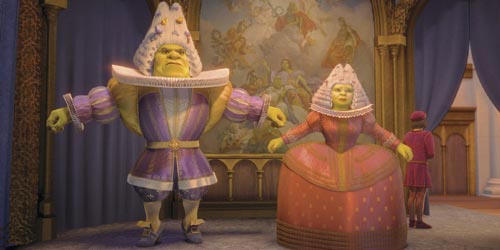 classic Disney, and the updated, apologist buffoons that Hollywood is serving up to boys like mine. They don’t want their fairytales to undergo a gory reversal toward the truly grim versions of Grimm’s. My ten-year-old understood that once parents felt the need to educate their kids that the outside world was a scary, unpredictable place, but when asked if boys still need brutal fairytales to teach that lesson, he replied with a snort, “Are you kidding? All you have to do to learn that is watch the news, for gods’ sakes.”
classic Disney, and the updated, apologist buffoons that Hollywood is serving up to boys like mine. They don’t want their fairytales to undergo a gory reversal toward the truly grim versions of Grimm’s. My ten-year-old understood that once parents felt the need to educate their kids that the outside world was a scary, unpredictable place, but when asked if boys still need brutal fairytales to teach that lesson, he replied with a snort, “Are you kidding? All you have to do to learn that is watch the news, for gods’ sakes.”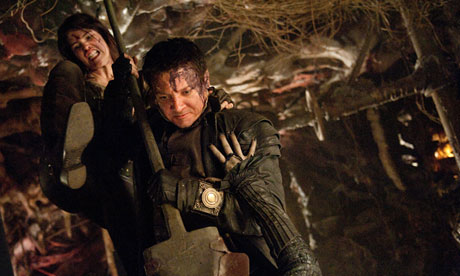

 It’s been a bad week in the media for people sensitive to trigger issues. Rape, consent, racism, intolerance, and general lack of humanheartedness abound, and with them the traveling herds of trolls who flock to such ripe feeding grounds from their mountain bridges.
It’s been a bad week in the media for people sensitive to trigger issues. Rape, consent, racism, intolerance, and general lack of humanheartedness abound, and with them the traveling herds of trolls who flock to such ripe feeding grounds from their mountain bridges.